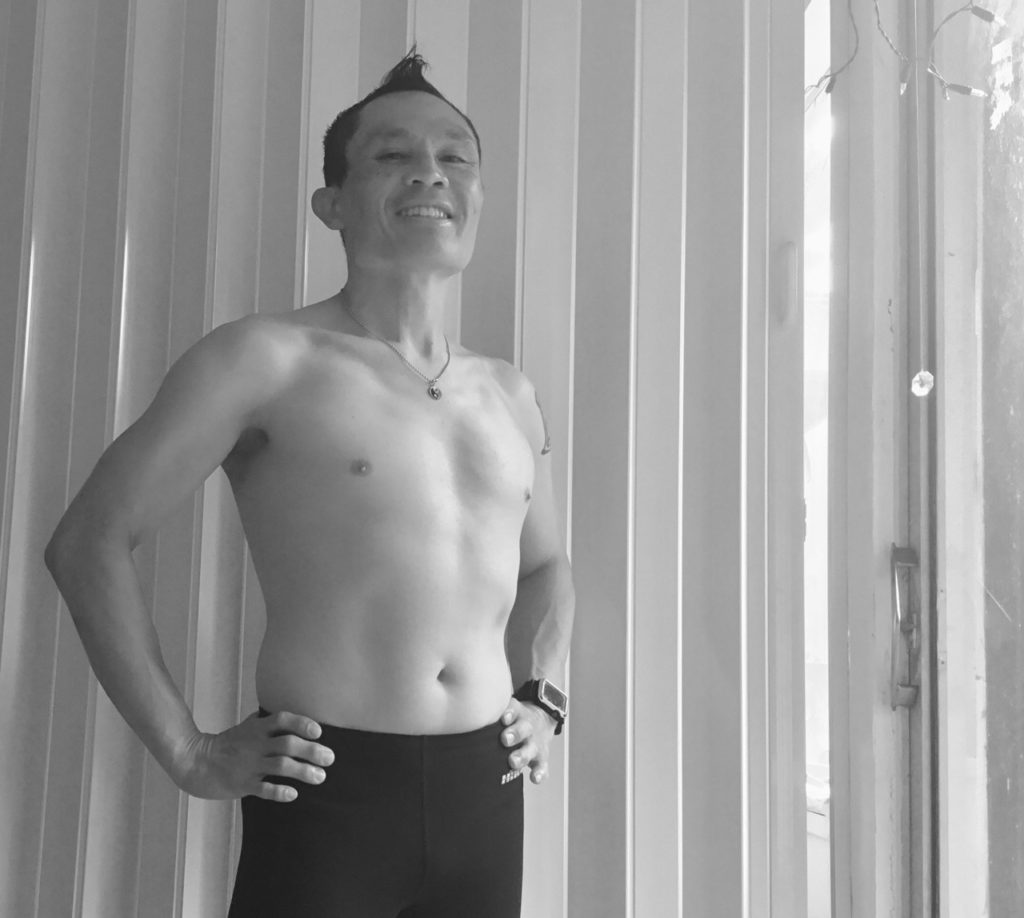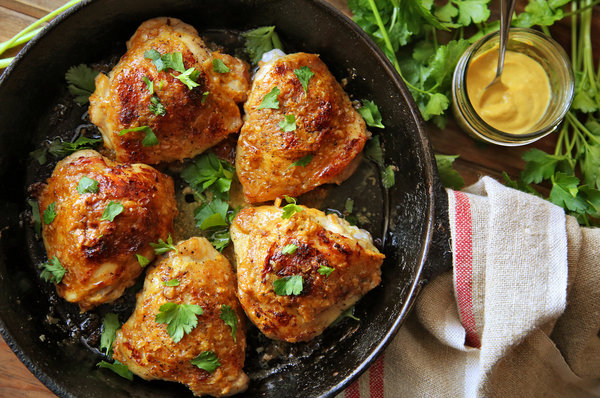This week marks one year of me following the dieting method Intermittent Fasting (IF)!
I didn’t have many expectations when I started. Really I was just tired of hearing raves about IF from so many friends. So I did some research and decided to try it out and see how it felt.
Turns out, I was well positioned to take to this method already. Years of low-carb dieting had prepared me for abstaining from certain classes of foods for long periods of time. I’m not a late night snacker and I rarely eat out. So I didn’t have too many bad habits to break.
So here’s how it has gone for me. This may be boring for everyone who isn’t me. But I think my future self will thank me for this.
My IF Schedule
I’ve been following the 18:6 schedule for about the past six months, which works well for me. Specifically, my weekly fasting / eating schedule is:
- 11:30am-5:30pm Eating Allowed.
- 5:30pm-11:30am: Fasting Period.
That’s Monday through Friday. I give myself a generous break on the weekends, starting on Friday evening, and lasting until Sunday at 5:30pm. During the weekends, all bets are off — ice-cream, late night popcorn, donuts, whatever.
My friend Liz follows a similar schedule, but starts her eating window earlier at 10:30am and eats an early dinner at 4:30pm.
I began with the traditional 18:6 schedule that most IF experts recommend to start. It was mostly painless, except for that last hour of the fast. So after a few months of that, I switched to 16:8 and haven’t looked back.
Some people are more rigorous with their IF schedule and don’t allow any “cheating.” But one of my goals was to create a schedule that worked with my lifestyle and I could sustain for a very long time.
What I Eat When
The schedule part was pretty easy to figure out. Working out when I eat meals and what I’m eating has been a more experimental and iterative process.
I started intermittent fasting by going a little nuts during my eating period: devouring a big meal as soon as possible, and eating as much as I could until the last second of my eating window. Basically, I was bingeing.
After a couple of months, I relaxed more, as I figured out that getting from the fasting period to my next eating window was not going to be that hard.
For most of the year I have followed this general eating pattern:
- 11:30ish: a small bowl of Greek yogurt
- 12:00pm: a late “breakfast” of eggs and salad greens or spinach
- Afternoon: snacks as desired, mostly nuts, cheese, carrots, peanut butter, and some sweets
- 5:00pm: a protein heavy dinner with veggies and grains
So really I am eating two meals a day, with the principal meal being dinner. Dinners for me typically are:
- Roast chicken with roasted veggies and a salad
- Baked chicken thighs with steamed veggies and brown rice
- Shawarma chicken with hummus, salad, and brown rice
- One pot pasta with beans
- A tofu stir fry with brown rice
I’m honestly a little obsessed with roast chicken, and could subsist on that for most of my meals.
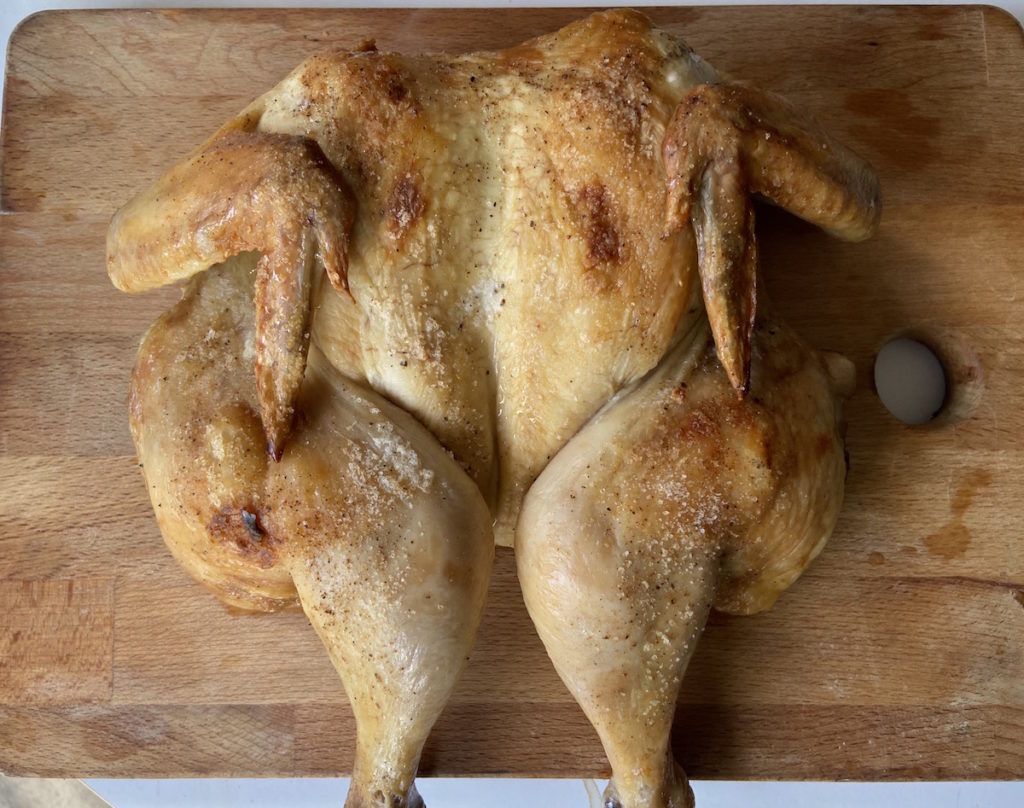
One challenge was weaning myself off of a large breakfast first thing in the morning. But as my friend Jessica told me, “You can still have breakfast. You just have it later.”
Breakfast is typically some variant on eggs and salad, sometimes with sausage or bacon if I happen to have it around. I actually love eggs and am constantly trying to make the “perfect” fried egg, omelette, and scrambled eggs. I recently figured out how to make creamy, buttery, large curd scrambled eggs that are so delicious.
I eat a ton of leafy greens. I buy those large $5 containers of mixed greens from the grocery and plow my way through that all week. I always have stocked a couple of my favorite salad dressings and can make a simple vinaigrette in seconds.
I consume quite a bit of olive oil and butter. I currently have three kinds of butter in the fridge.
My cupboard is well stocked with lots of different kinds of nuts, particularly walnuts, cashews, and mixed nuts, as well as peanut butter. I always have a couple of bars of 85% dark chocolate available for snacking.
Results: Weight Loss, High Energy, Happiness
So the big question is: what impact did intermittent fasting have on my health?
On the one hand, I was already going into IF near my weight goal and living a healthy lifestyle. I think most people are doing IF to lose weight, which I think is a solid strategy. But that was not my singular focus.
That said, I did lose weight. Here’s what my weekly weight measurement looked like over 2020. Overall I lost about 12 pounds during the period.
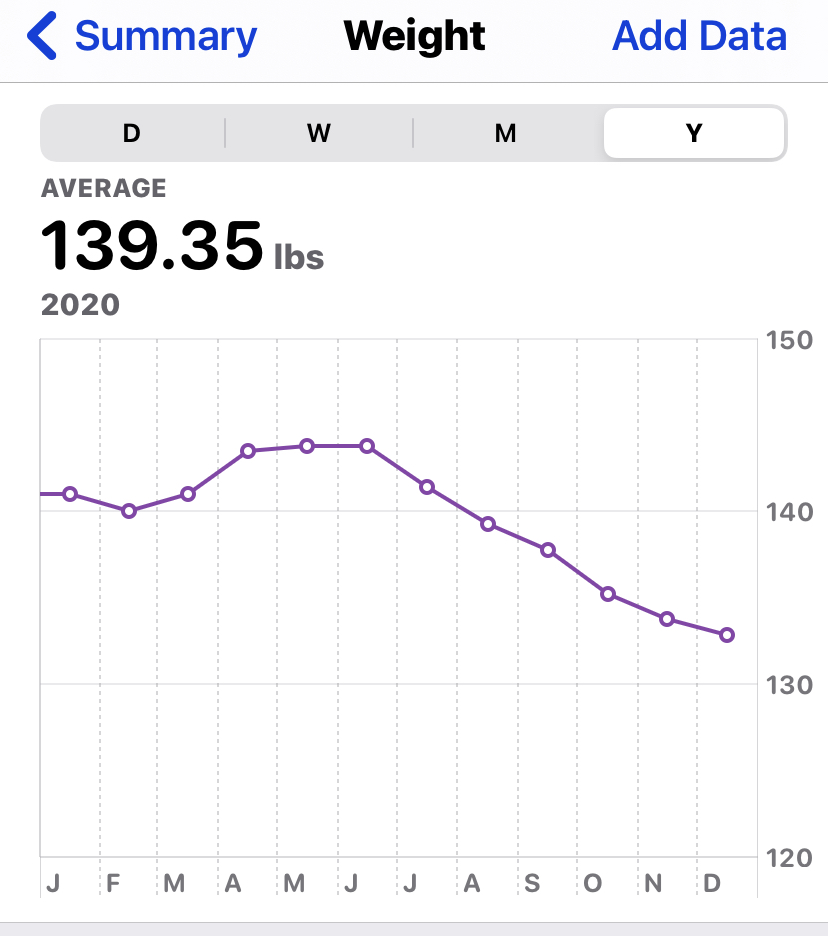
In general, my energy levels have been great during both my fasting periods and eating windows. I haven’t had to curtail any physical activities like running or skating because of lack of energy. I do experience a slight dip in energy in the evenings if I’m not doing anything active, but that is normal for me.
More importantly, I’ve been happy doing this diet. I look forward to both my eating windows and my fasting periods. It doesn’t feel like drudgery or bean counting. There are no charts, tables, or math needed.
General Observations
Working from Home Helps
The pandemic and working from home have generally made it easier to stick to this method.
In the Before Times, when I was in an office, there were many more temptations to break away from my schedule — free donuts in the pantry, a lunch time talk with catered pizza, fresh baked goods a coworker brought in that morning, etc.
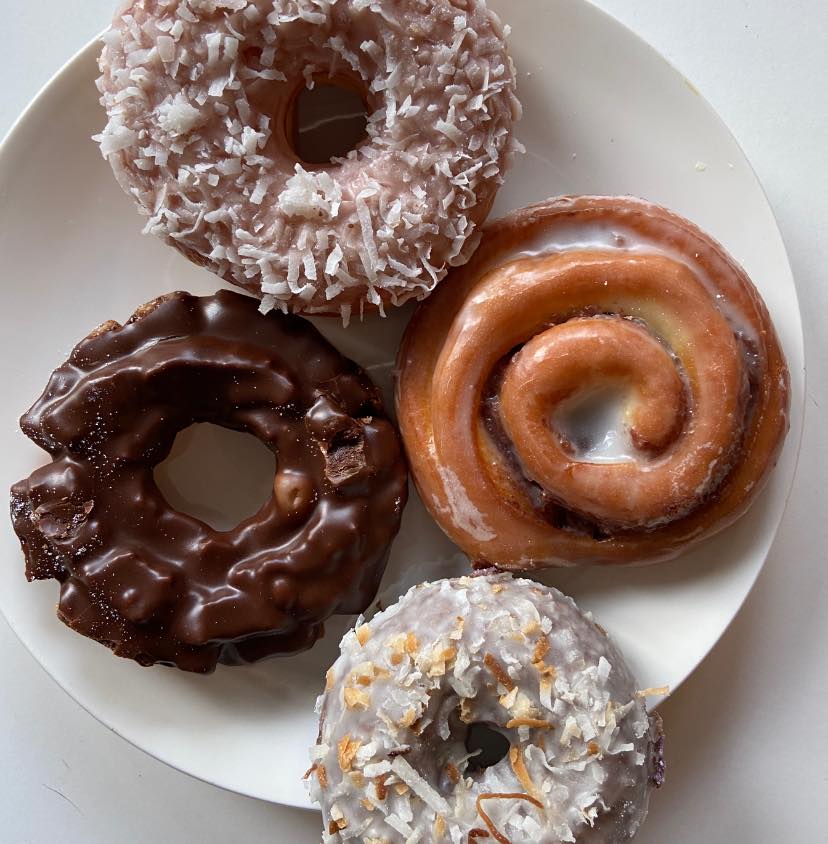
But being alone and at home, I have much more control of what I eat and what is available to me. I do have junk food around — ice cream in the freezer, cookies in the pantry, etc. — but it’s not the same as someone coming around and offering it to you.
And if I get restless and feel like I want a snack during my fasting window, I can just put on some dance music and mess around for a bit or go outside a quick bike ride or a skate. Typically it’s more that I’m feeling bored or anxious, and my body interprets that as a call for food.
Freedom from Eating
I have learned to enjoy the freedom of not having to think about eating during most of my day. Between 5:30pm and 11:30am, I have the freedom to do whatever else that I want, without having to worry about what I’m going to eat next. It’s pretty great.
And when I do feel a little pang of hunger or a desire to snack, I remind myself of how my fasting period is allowing my body to digest and process what I ate. Then I make myself a cup of tea and I’m all good.
IF Is Not for Everyone
While for me intermittent fasting has been a game-changer, I recognize that it isn’t for everyone.
Some people don’t have the freedom that I have to rearrange their schedule to match their diet. If I had a partner and kids this would be a lot more to try and manage. A lot of work situations don’t allow you to eat when you want like mine does. And I have the time and energy to make myself the meals that I like, which not everyone does.
That said, the idea of examining not only what you eat but when I think is something that everyone can benefit from. Simply by being more mindful of your fasting window and eating periods, you get a lot more control over your life and your health goals.
If you’ve gotten this far, I hope you have found this helpful and encouraging. I wish you well on your own health journey.
